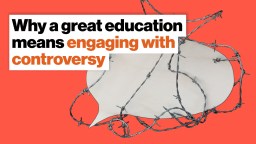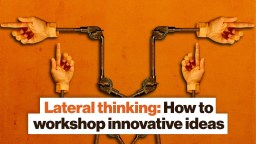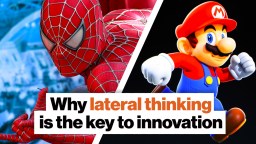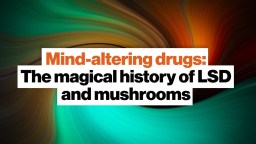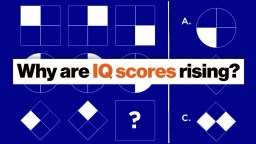brain
Why Django Reinhardt might just be the greatest musical innovator you’ve never heard of.
▸
4 min
—
with
The downsides of drug abuse are so clear that one would imagine smarter folks would stay away from them. The research suggests otherwise.
Studying ‘episodic memory’ in animals may hold the key to understanding memory loss in humans.
What foods are women reaching for? Carbs and fats and sweets.
The remarkable distributed nervous system of the octopus is discussed at an astrobiology conference.
Jonathan Zimmerman explains why teachers should invite, not censor, tough classroom debates.
▸
6 min
—
with
You can be born with good genes and study hard and still not meet your potential. Your environment has a lot to do with how smart you are.
Don’t underestimate the power of play when it comes to problem-solving.
▸
7 min
—
with
Barbara Tversky takes an outdated idea to task in Mind in Motion.
Harvard psychologists discover why we dislike the people who deliver bad news.
Michael Pollan explains what goes on during the mental fireworks of a psychedelic experience.
▸
5 min
—
with
The study highlights the incredible neuroplasticity of the brain.
How do you know you are real? A classic paper by philosopher Nick Bostrom argues you are likely a simulation.
Think adrenaline leaves you unable to think clearly? Think again.
A recent study used data from the Big Five personality to estimate psychopathy prevalence in the 48 contiguous states and Washington, D.C.
Can dirt help us fight off stress? Groundbreaking new research shows how.
Here’s why generalists triumph over specialists in the new era of innovation.
▸
5 min
—
with
Why did government officials stop psychedelics from reaching mainstream culture?
▸
22 min
—
with
300 years of industrialization have boosted our IQ scores in one very specific way.
▸
6 min
—
with
When should you censor yourself, and when should you speak up? Emily Chamlee-Wright explains moral philosopher Adam Smith’s ‘impartial spectator’.
▸
7 min
—
with
Rote memorization doesn’t cut it for theoretical physicist Michio Kaku. Here’s why.
▸
4 min
—
with
Humans are hardwired to believe in nonsense, says Michio Kaku. So what can we do about it?
▸
4 min
—
with
The results show how diets high in saturated fat can cause fatty acids to build up in the hypothalamus, disrupting its normal functioning.
A new study looks at astronauts’ brains after they come back home.
Depression is quicksand, says comedian Pete Holmes. Try this method to help you cope and live with depression.
▸
7 min
—
with
Neuroscience is working to conquer some of the human body’s cruelest conditions: Paralysis, brain disease, and schizophrenia.
▸
5 min
—
with
New computing theory allows artificial intelligences to store memories.
Being bilingual has cultural, social, and cognitive benefits — so why are schools dropping language courses?
When are you most optimistic? A study found how optimism varies throughout life.
Study finds that neurotic people deal with more “mental noise” than others.





